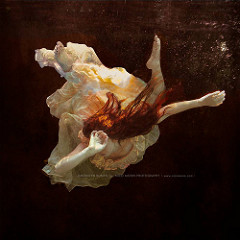You have no items in your cart. Want to get some nice things?
Go shopping
If the saddest songs are the sweetest, are the saddest stories the hardest to forget? Novels with happy endings may have their charms but I have always felt that they lack the raw emotional power of their bleak counterparts. Grief, while hard to bear in life, often makes better fodder for fiction than happiness. Would A Farewell To Arms mean so much to us if everyone got to live happily ever after? Would Atonement haunt us the way it does if all was forgiven in the end? Would we respond to The Hours with such intensity if it were not for its haunting melancholic strain?
I am not arguing that misery for misery’s sake is a hallmark of great literature. But a book that captures the raw ache of human experience has immense power to connect with readers and to transform them in a fundamental way. A quote from a well-known literary critic sums it up. Referring to Kazuo Ishiguro’s fiction, Gabriele Annan wrote in the New York Review of Books, “After one puts down his novels, insights go on plopping into one’s mind like drops from a tap that is supposed to be turned off.”
Here, dear reader, is a list of some my favorite “sad books” (in no particular order). If you haven’t read them yet, I suggest you pick up your copies pronto. They will break your heart but I guarantee you will be all the wiser for it.
When We Were Orphans, Kazuo Ishiguro
Christopher Banks’ penchant for detective work in When We Were Orphans springs from an unsolved mystery that continues to haunt him – the disappearance of his parents when he was a boy living in Shanghai. Ishiguro’s canvas is wide. The story, moving between China and Britain, resonates with the political troubles and global power struggles of the times. Banks’ mission to make sense of his own self by putting together the clues he painstakingly gathers is a metaphor for a universal search. Banks is a wounded man and he longs to glue the broken pieces of his life back together. The novel traces his quest for healing with subtlety and incredible emotional intelligence.
The Year of Magical Thinking, Joan Didion
Reading Didion’s real-life account of her marriage and her bond with her ailing daughter is an intense experience. Didion never hits a false note or slips into syrupy sentimentality even if she is writing about an extremely personal subject. Her insights on familial bonding and her description of the emotional toll her husband’s death takes on her is vivid, honest, and extremely moving. Love, death, illness, loss, grief, mourning, healing – Didion’s prose captures their nuances with endearing vulnerability.
Tess of the d’Urbervilles, Thomas Hardy
The tragedies that stalk Tess in this classic highlight the flaws of repressive Victorian society where women were subjected to a different set of moral values than men and judged very harshly for their perceived transgressions. Anyone with a beating heart will shed a tear for Tess. Her list of troubles is long and her suffering, endless. Hardy paints a relentlessly bleak picture of her life to make his readers take a closer look at a skewed social setup and its inherent prejudices.
The End of the Affair, Graham Greene
Darkness lurks in all of Greene’s novels like a ghost. In The End of the Affair, Greene explores the frailty of the human heart and the tenuous connection between humanity and divinity. Maurice Bendrix’s adulterous affair with Sarah Miles plays out against the backdrop of wartime London. The anguish he feels when Sarah breaks off their relationship and the anger that grips him when he realizes that god is the “third man” responsible for their breakup are captured poignantly in the novel. Greene raises critical questions about love and longing, the nature of desire, and the eternal conflict between the carnal and the spiritual, and compels readers to ponder about the answers.
Revolutionary Road, Richard Yates
Revolutionary Road is as much the story of a young, suburban American couple in the 50’s as it is a searing account of the failure of the American dream. Frank and April Wheeler seemingly have it all – financial security, a pretty house in the suburbs, a perfect family. Yates’ prose peels off the layers with a rare mix of clinical precision and compassion, exposing the reality behind the gilded exterior. As well-kept pretences crumble and Frank and April hurtle towards catastrophe, the family becomes a stand-in for a nation in crisis.

About Vineetha Mokkil
Vineetha Mokkil is the author of the short story collection, "A Happy Place and Other Stories" (HarperCollins). She received an honorary mention in the Anton Chekhov Prize for Short Fiction 2020 and was shortlisted for the Bath Flash Award in 2018. Her fiction has appeared in Gravel, the Santa Fe Writers' Project Journal, Cosmonauts Avenue, Quarterly Literary Review Singapore, and "The Best Asian Short Stories 2018" (Kitaab, Singapore).



